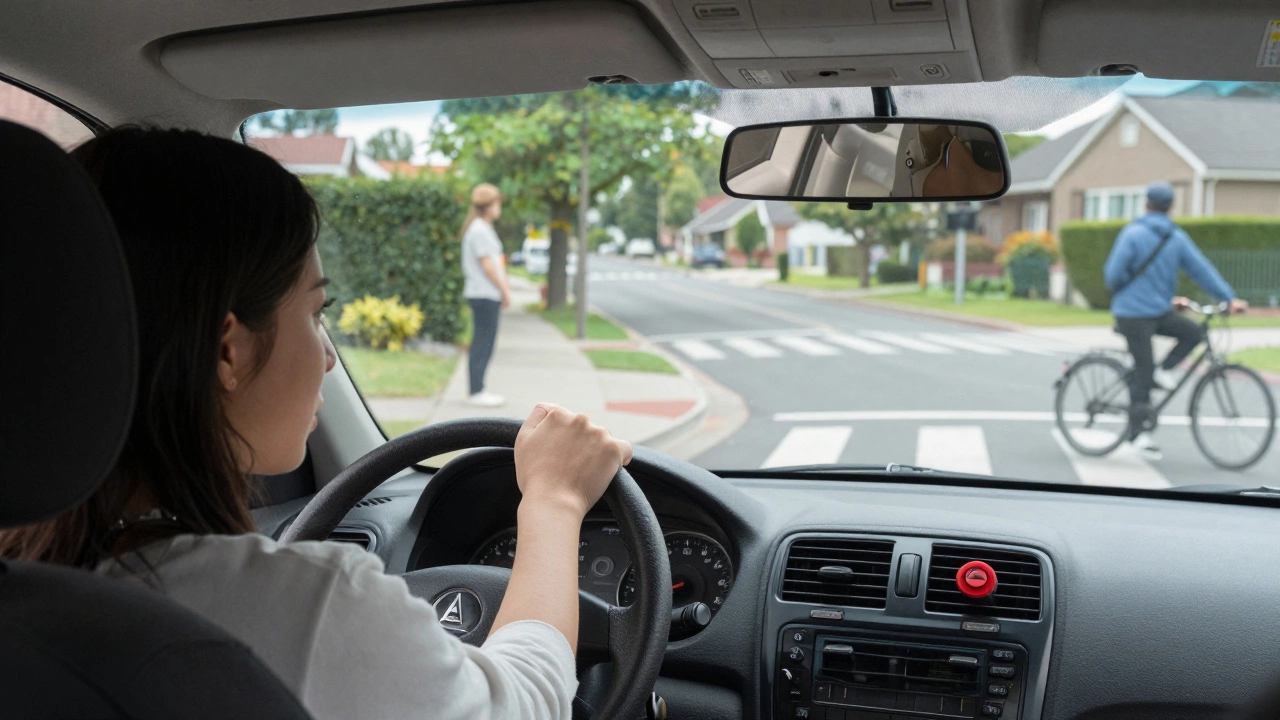Driving Test Failure – Why It Happens and What to Do
So you just got that dreaded "fail" paper. It stings, but it’s not the end of the road. Most learners fail for reasons that are easy to fix once they know what they are. Let’s break down the usual culprits and give you a clear game plan to get back behind the wheel with confidence.
Top Reasons Learners Fail
1. Nerves taking over. The test centre is a pressure cooker. When anxiety spikes, simple tasks like checking mirrors or signalling slip. A quick breathing routine before the start can calm the mind and keep your hands steady.
2. Missing basic maneuvers. Many candidates forget to do a proper reverse park, pull‑out, or hill start. These moves are scored heavily, and a single slip can cost you several points. Practicing each maneuver in a quiet parking lot builds muscle memory.
3. Not following examiner instructions. The examiner may ask for a turn‑in‑the‑road or a specific lane change. Jumping ahead or ignoring the cue looks like disobedience. Listen carefully, repeat the instruction back if you’re unsure, then act.
4. Poor observation. Forgetting to check blind spots, or glancing at the dashboard, signals a lack of awareness. Use the “mirror‑over‑shoulder‑mirror” routine at every junction to stay safe and score points.
5. Speed control issues. Driving too fast or too slow shows you’re not comfortable with the road conditions. Keep your speed in the middle of the posted limit, adjusting for traffic and weather.
Practical Steps to Turn a Fail into a Pass
First, ask the examiner for a detailed feedback sheet. Knowing exactly where you lost points helps you focus your practice. Then, schedule a few targeted lessons with an instructor who can watch your weak spots.
Second, build a mental checklist. Before each maneuver, run through: mirror, over‑shoulder, signal, execute. Doing this out loud reinforces the habit.
Third, simulate test conditions. Set a timer for each maneuver, practice on a route similar to the test centre, and ask a friend to act as the examiner. The more you mimic the real thing, the less shocking the actual day will feel.
Fourth, manage fatigue. A tired brain makes simple mistakes more likely. Get a good night’s sleep before the test and avoid heavy meals that can sap energy.
Finally, stay positive. A fail is just data – it tells you what to improve. Celebrate the small wins in your practice sessions; confidence builds over time.
Remember, most drivers who eventually pass have failed at least once. The difference is they turned the experience into focused practice. Use the feedback, hone the basics, and book your next test when you feel ready. You’ve got this!
- February 22 2026
- 0 Comments
- Rowan Cavendish
Is Forgetting to Indicate a Major Mistake in Your Driving Test?
Forgetting to indicate during your driving test can lead to failure, even if you think no one's around. Learn when it's a fail, when it's not, and how to build the habit that keeps you safe and passes your test.
- July 11 2025
- 0 Comments
- Rowan Cavendish
Driving Test Mistakes: How Many Major Faults Lead to Failure?
Wondering how many major mistakes you can make on your driving test before failing? Get the facts, real tips, and essential stats right here—no fluff, just answers.
- Driving Lessons (43)
- Driving Test Tips (35)
- HGV Training (32)
- Driving Test Booking (28)
- Driving Licence Renewal (26)
- Driving Theory Test (22)
- Intensive Driving Course (20)
- Pass Plus Course (15)
- Driving Tips (15)
- Driver Licensing (14)
Categories
- February 2026 (9)
- January 2026 (13)
- December 2025 (15)
- November 2025 (13)
- October 2025 (21)
- September 2025 (5)
- August 2025 (8)
- July 2025 (30)
- June 2025 (30)
- May 2025 (30)
- April 2025 (31)
- March 2025 (30)
Archives
- driving lessons
- driving test
- driving tips
- intensive driving course
- driving test tips
- HGV training
- driving theory test
- learn to drive
- driver training
- pass driving test
- driving test booking
- HGV driving
- road safety
- Virginia driving test
- driving license renewal
- Virginia driver's license
- learner drivers
- safe driving
- driving license
- learning to drive


